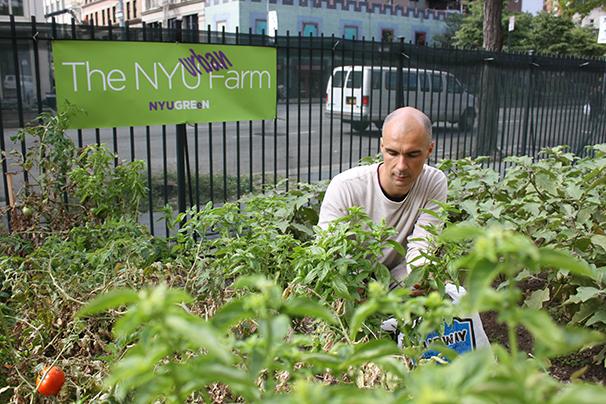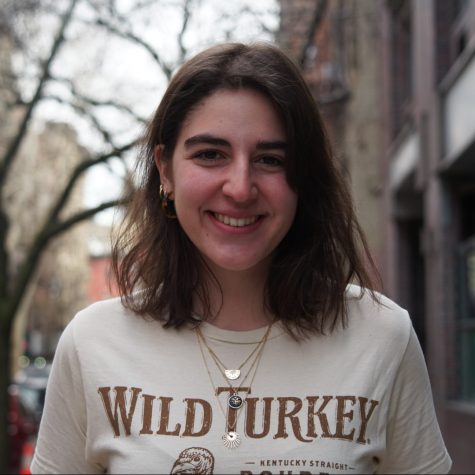Give Bees a Chance
The “Food Computer,” invented by MIT agricultural researcher Caleb Harper, can progress urban farming by making it more sustainable. Amy Bentley, co-founder of the NYU Farm Lab and Professor of Food Studies at NYU Steinhardt, is thinking about using the “Food Computer” at the NYU Farm Lab.
March 1, 2017
Environment America — a group of state-based environmental advocacy organizations that promote, protect and improve the environment and its interests — recently released a new campaign for bees. After realizing that bees are dying at a rapid rate, the group is encouraging restaurant owners and chefs to form a bee-friendly food alliance. This group is not the only one trying to stop bees from dying — Greenpeace has been trying to save the bees with its Pollinator Recovery Act which aims to ban certain pesticides and restore ecological agriculture .
Why are bees important?
One-third of the food we produce depends on pollination. Some crops like blueberries and raspberries are 90 percent dependent on bee pollination, and almonds fully rely on bee pollination at bloom time. Bees perform a task that is vital to agriculture. If bees become extinct, their benefits to both us and the entire ecosystem will be in jeopardy. The plants they pollinate will die, which means the animals who feed on these plants will die. In a world without bees, it would be very difficult to feed a growing human population since they are vital to food production. Additionally, our world would not be as colorful — we would lose most of our floral landscapes. Supermarkets would lose half of their fruit and vegetable supply.
How are they dying?
It is no secret that companies and large corporations have been ruining the environment exponentially ever since the Industrial Revolution.
Bees are dying because of pesticides, habitat destruction, air pollution and global warming. Wild bee habitats decrease as agribusinesses converts grasslands into mono-culture farms, which are then contaminated by pesticides. Although big chemical companies like Monsanto, DuPont and Bayer totally disregard this situation, pesticides and other toxic chemicals kill bees and other species. This brings into question the pesticide policies of our destructive agricultural system.
What can be done?
The first steps you can take to help the bees are signing the Greenpeace petition and sending a letter to your senator. You can also tell the EPA to prohibit bee-killing pesticides through Environment America. Most importantly, NYU boasts the first urban agriculture project in New York City located on a landmarked site. The project is called the NYU Urban Farm Lab. This project researches ways to make agriculture more sustainable, and its participants learn about urban agriculture more about urban agriculture. Directed by Food Studies Professors Jennifer Berg and Amy Bentley, the Urban Farm Lab is maintained by students in the Urban Agriculture class and volunteers. It is located in 110 Silver Towers at Houston Street and Wooster. Although there are no volunteering opportunities currently available, it is important to stay connected and check for updates. The farm is a great resource to learn more about agricultural issues — including the future of our bee population — and take a stand against the environmental problems plaguing our world.
Email Yasmin Gulec at [email protected].
























































































































































